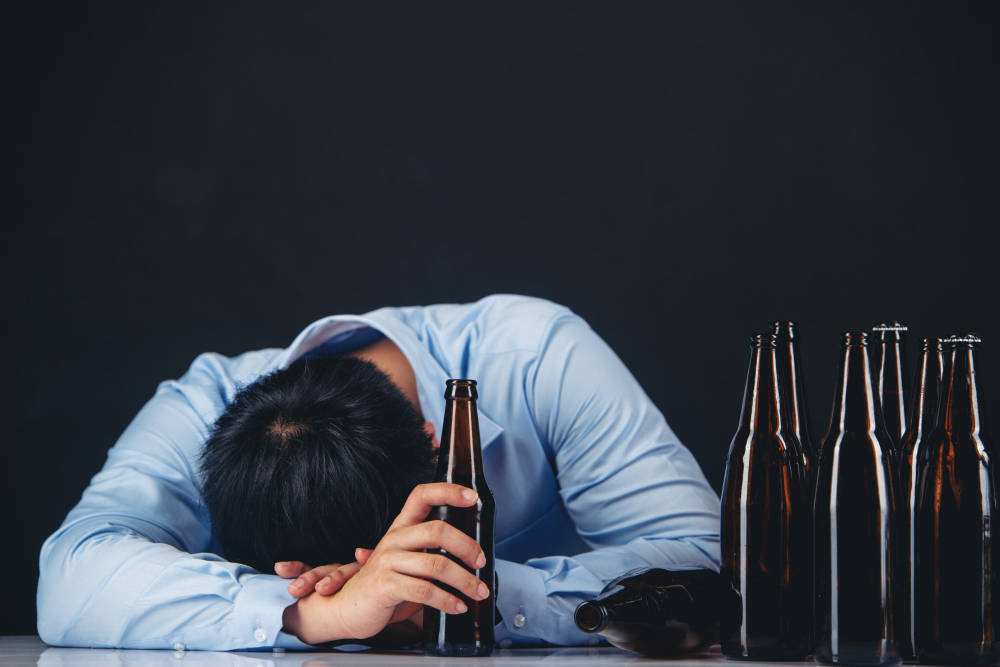Introduction
Alcohol addiction is a serious health problem that affects millions of people worldwide. It means a person cannot control their drinking, even when it causes harm. Early treatment is important. Comprehensive detoxification and recovery treatment help people stop drinking safely and rebuild their lives. Alcohol detoxification is the first step in alcohol addiction recovery. With the right support, recovery is possible for everyone.
Symptoms and Signs of Alcohol Addiction
Recognizing the signs of alcohol addiction can help you or a loved one seek help sooner. Common symptoms include:
Sometimes, people may hide their drinking. However, changes in mood, sleep, or behavior can be warning signs.
Causes and Risk Factors
Many factors can lead to alcohol addiction. For example, genetics can play a role. If a family member has an addiction, the risk is higher. Stress, mental health issues, and peer pressure also increase the risk. Easy access to alcohol and starting to drink at a young age can make addiction more likely. But, not everyone with these risks will develop a problem.
Diagnosis and Assessment Methods
Doctors use several methods to diagnose alcohol addiction. First, they ask about drinking habits and health history. Next, they may use screening tools like the AUDIT questionnaire. Blood tests can check for liver damage or other health issues. Sometimes, doctors talk with family members to get a full picture. Early diagnosis helps people get the right treatment quickly.
Comprehensive Detoxification: Process, Safety, and Medical Supervision
Alcohol detoxification is the process of clearing alcohol from the body. It is the first step in comprehensive alcohol treatment. Detox can cause withdrawal symptoms, such as shaking, sweating, or anxiety. In some cases, withdrawal can be dangerous. Therefore, safe alcohol withdrawal should always happen under medical supervision. Doctors may give medicines to ease symptoms and prevent complications. Medical staff monitor vital signs and provide support. Detox usually lasts a few days to a week. After detox, ongoing recovery treatment is needed.
Recovery Treatment Options
After detox, recovery treatment helps people stay alcohol-free. There are several options:
Each person’s needs are different. So, a doctor can help choose the best plan. In some cities, treatment centers may have waiting lists. Therefore, it is important to ask about local options early.
Lifestyle Guidance for Recovery and Relapse Prevention
Staying alcohol-free takes ongoing effort. Healthy habits can make recovery easier. For instance, regular exercise and a balanced diet support the body and mind. Building a daily routine helps reduce stress. Avoiding places or people linked to drinking lowers the risk of relapse. Many people find new hobbies or interests helpful. If cravings return, reaching out for help quickly is important. Recovery is a journey, but small steps add up over time.
Tips for Supporting a Loved One
Supporting someone with alcohol addiction can be challenging. However, your help can make a big difference. Here are some tips:
Sometimes, joining a support group for families can provide extra guidance.
Prevention Strategies
Preventing alcohol addiction starts with education. Parents can talk openly with children about the risks of drinking. Setting clear rules and being a good role model helps. Schools and communities can offer programs to teach healthy coping skills. Limiting access to alcohol, especially for young people, is important. If you notice early signs of a problem, seeking help quickly can prevent addiction from getting worse.
Alcohol addiction is treatable. With comprehensive alcohol treatment, safe alcohol withdrawal, and ongoing support, recovery is possible. Consult a healthcare professional for personalized guidance on alcohol addiction recovery.

